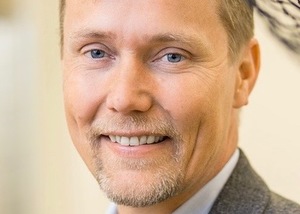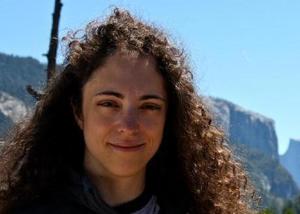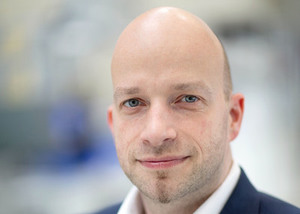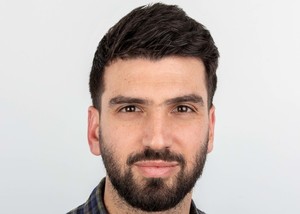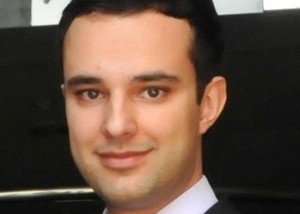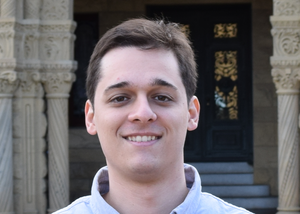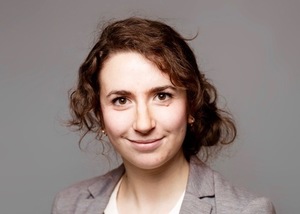Group Talks
- Jonas Umlauft
- MPI-IS Stuttgart, Heisenbergstr. 3, seminar room 2P4
Machine learning allows automated systems to identify structures and physical laws based on measured data, which is particularly useful in areas where an analytic derivation of a model is too tedious or not possible. Research in reinforcement learning led to impressive results and superhuman performance in well-structured tasks and games. However, to this day, data-driven models are rarely employed in the control of safety critical systems, because the success of a controller, which is based on these models, cannot be guaranteed. Therefore, the research presented in this talk analyzes the closed-loop behavior of learning control laws by means of rigorous proofs. More specifically, we propose a control law based on Gaussian process (GP) models, which actively avoids uncertainties in the state space and favors trajectories along the training data, where the system is well-known. We show that this behavior is optimal as it maximizes the probability of asymptotic stability. Additionally, we consider an event-triggered online learning control law, which safely explores an initially unknown system. It only takes new training data whenever the uncertainty in the system becomes too large. As the control law only requires a locally precise model, this novel learning strategy has a high data efficiency and provides safety guarantees.
Organizers: Sebastian Trimpe
- Prof. Karl H. Johansson
- MPI-IS Stuttgart, Heisenbergstr. 3, seminar room 2P4
Security and privacy is of growing concern in many control applications. Cyber attacks are frequently reported for a variety of industrial and infrastructure systems. For more than a decade the control community has developed techniques for how to design control systems resilient to cyber-physical attacks. In this talk, we will review some of these results. In particular, as cyber and physical components of networked control systems are tightly interconnected, it is be argued that traditional IT security focusing only on the cyber part does not provide appropriate solutions. Modeling the objectives and resources of the adversary together with the plant and control dynamics is shown to be essential. The consequences of common attack scenarios, such denial-of-service, replay, and bias injection attacks, can be analyzed using the presented framework. It is also shown how to strengthen the control loops by deriving security and privacy aware estimation and control schemes. Applications in building automation, power networks, and automotive systems will be used to motivate and illustrate the results. The presentation is based on joint work with several students and colleagues at KTH and elsewhere.
Organizers: Sebastian Trimpe Dominik Baumann
- Dr. Michael Muehlebach
- MPI-IS Stuttgart, Heisenbergstr. 3, seminar room 2P4
My talk will be divided into two parts. In the first part, I will analyze Nesterov's accelerated gradient method from a dynamical systems point of view. More precisely, I will derive the accelerated gradient method by discretizing an ordinary differential equation with a semi-implicit Euler integration scheme. I will analyze both the ordinary differential equation and the discretization for obtaining insights into the phenomenon of acceleration. In particular, geometric properties of the dynamics, such as asymptotic stability, time-reversibility, and phase-space volume contraction are shown to be preserved through the discretization. In the second part, I will show that these geometric properties are enough for characterizing the convergence rate. The results therefore provide criteria that are easily verifiable for the accelerated convergence of any momentum-based optimization algorithm. The results also yield guidance for the design of new optimization algorithms. The talk will focus on unconstrained optimization problems with smooth and strongly-convex objective functions, even though the analysis potentially generalizes to non-convex or non-Euclidean settings, or when the decision variables are constrained to a smooth manifold.
Organizers: Sebastian Trimpe
- Prof. Martina Maggio
- MPI-IS Stuttgart, Heisenbergstr. 3, seminar room 2P4
Cloud computing gives the illusion of infinite computational capacity and allows for on-demand resource provisioning. As a result, over the last few years, the cloud computing model has experienced widespread industrial adoption and companies like Netflix offloaded their entire infrastructure to the cloud. However, with even the largest datacenter being of a finite size, cloud infrastructures have experienced overload due to overbooking or transient failures. In essence, this is an excellent opportunity for the design of control solutions, that tackle the problem of mitigating overload peaks, using feedback from the infrastructure. These solutions can then exploit control-theoretical principles and take advantage of the knowledge and the analysis capabilities of control tools to provide formal guarantees on the predictability of the infrastructure behavior. This talk introduces recent research advances on feedback control in the cloud computing domain, together with my research agenda for enhancing predictability and formal guarantees for cloud computing.
Organizers: Sebastian Trimpe
- Prof. Dr.-Ing. Marco Huber
- MPI-IS Stuttgart, Heisenbergstr. 3, seminar room 2P4
Fraunhofer IPA in Stuttgart is one of the largest institutes within the Fraunhofer Society with a strong focus on production technologies and automation. Research and technology transfer efforts on machine learning and artificial intelligence are concentrated at IPA’s Center for Cyber Cognitive Intelligence (CCI). This talk gives an introduction to CCI‘s mission and typical industrial applications being addressed. Furthermore, an overview of the research areas and a deep dive into selected topics are provided. Examples are 6D pose estimation for robotic bin-picking, explainable machine learning, Bayesian filtering for object tracking, or event correlation mining.
Organizers: Sebastian Trimpe
Thermoacoustic instabilities: various approaches to estimation and control
- 01 July 2019 • 14:00—15:00
- Florent Di Meglio
- MPI-IS Stuttgart, Heisenbergstr. 3, seminar room 2P4
Reducing the size and emissions of gas turbine engines used in the aeronautics industry forces manufacturers to explore new operating conditions. An undesirable phenomenon called thermo-acoustic instabilities may occur, caused by the coupling between combustion dynamics and the acoustics of the combustion chamber. To help predict, detect and suppress it, we explore various approaches. We will discuss the design of observers for infinite-dimensional systems, Fourier-based reduced-order modeling as well as a Machine-Learning approach based on high-fidelity simulation data.
Organizers: Sebastian Trimpe Mona Buisson-Fenet
Advances in inertial sensor fusion and learning control and how they enable biomimetic neuroprostheses
- 18 March 2019 • 14:00—15:00
- Dr.-Ing. Thomas Seel
- MPI-IS Stuttgart, seminar room 2P4
Neurological disorders and injuries lead to a loss of sensorimotor function in the central nervous system, which controls the musculoskeletal system. Novel systems and control methods can be employed to create neuroprostheses that restore these functions to an unprecedented degree by two major advances: (1) Long standing limitations of inertial motion tracking are overcome by novel parameter estimation and sensor fusion methods. (2) A recent extension of classic learning control methods facilitates real-time pattern adaptation in artificial muscle recruitment. We review the role of these methods in the development of biomimetic neuroprostheses and discuss their potential impact in a range of further application systems including autonomous vehicles, robotics, and multi-agent networks.
Organizers: Sebastian Trimpe
- Dr. Eugen Solowjow
- MPI-IS Stuttgart, seminar room 2P4
A dominant trend in manufacturing is the move toward small production volumes and high product variability. It is thus anticipated that future manufacturing automation systems will be characterized by a high degree of autonomy, and must be able to learn new behaviors without explicit programming. Robot Learning, and more generic, Autonomous Manufacturing, is an exciting research field at the intersection of Machine Learning and Automation. The combination of "traditional" control techniques with data-driven algorithms holds the promise of allowing robots to learn new behaviors through experience. This talk introduces selected Siemens research projects in the area of Autonomous Manufacturing.
Organizers: Sebastian Trimpe Friedrich Solowjow
Scalable Methods for Monitoring and Controlling Large-Scale Phenomena
- 18 October 2018 • 14:00—15:00
- Ravi Haksar
- MPI-IS Stuttgart, seminar room 2P4
What do forest fires, disease outbreaks, robot swarms, and social networks have in common? How can we develop a common set of tools for these applications? In this talk, I will first introduce a modeling framework that describes large-scale phenomena and which is based on the idea of "local interactions." I will then describe my work on creating estimation and control methods for a single agent and for a cooperative team of autonomous agents. In particular, these algorithms are scalable as the solution does not change if the number of agents or environment size changes. Forest fires and the 2013 Ebola outbreak in West Africa are presented as examples.
Organizers: Sebastian Trimpe
- Mona Buisson-Fenet
- MPI-IS Stuttgart, seminar room 2P4
With the expanding collection of data, organisations are becoming more and more aware of the potential gain of combining their data. Analytic and predictive tasks, such as classification, perform more accurately if more features or more data records are available, which is why data providers have an interest in joining their datasets and learning from the obtained database. However, this rising interest for federated learning also comes with an increasing concern about security and privacy, both from the consumers whose data is used, and from the data providers who are liable for protecting it. Securely learning a classifier over joint datasets is a first milestone for private multi-party machine learning, and though some literature exists on that topic, systems providing a better security-utility trade-off and more theoretical guarantees are still needed. An ongoing issue is how to deal with the loss gradients, which often need to be revealed in the clear during training. We show that this constitutes an information leak, and present an alternative optimisation strategy that provides additional security guarantees while limiting the decrease in performance of the obtained classifier. Combining an encryption-based and a noise-based approach, the proposed method enables several parties to jointly train a binary classifier over vertically partitioned datasets while keeping their data private.
Organizers: Sebastian Trimpe


